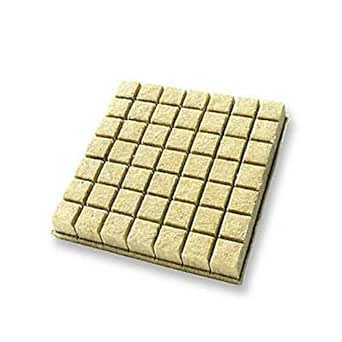Rockwool grow cubes have gained popularity among hydroponic gardeners for their unique properties and benefits. However, their cost can be a significant factor when deciding whether to use them. In this article, we’ll explore the pros and cons of rockwool grow cubes to help you determine if they are worth the investment for your gardening needs.
Pros of Using Rockwool Grow Cubes
Rockwool grow cubes offer several advantages that make them an attractive choice for hydroponic gardening:
Excellent water retention and wicking properties, allowing roots to easily absorb moisture
High air-to-water ratio, promoting robust root development and preventing root rot
Inert and sterile, providing a safe environment for germinating seeds and propagating cuttings
Modular design allows for easy movement and maximizing grow space
Relatively hands-off approach, requiring less frequent watering and nutrient adjustments
Cons of Using Rockwool Grow Cubes
While rockwool grow cubes have many benefits, there are also some drawbacks to consider:
Potentially harmful to the environment, as they are not biodegradable and can remain in landfills for a long time
Irritating to the skin, eyes, and lungs due to the presence of dust and loose fibers
Naturally high pH (around 8.0) that requires adjusting before use
Potential for salt accumulation over time, necessitating flushing
Relatively high cost compared to other growing media
Ultimately, the decision to use rockwool grow cubes depends on your specific gardening needs, budget, and preferences. They excel in providing an ideal environment for plant growth, but their cost and potential health and environmental concerns should be carefully considered.

If you decide to use rockwool grow cubes, it’s essential to properly prepare and care for them to ensure optimal plant health. This includes adjusting the pH, soaking and saturating the cubes, and monitoring plant health through regular nutrient management and EC/pH level tests.
For those seeking alternatives to rockwool, coconut coir and perlite/vermiculite offer unique benefits and challenges to consider. Ultimately, the choice of growing medium will depend on your specific needs, preferences, and gardening goals.